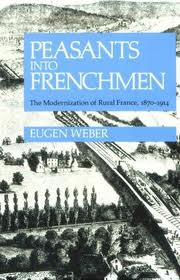Last updated on March 11, 2012
In college, I declared economics as my major before doing a Masters in economics and a PhD in applied economics. Having been trained as an economist through-and-through, I am thus woefully ignorant of what the humanities and other social sciences have had to say about development policy.
While I did read outside of economics during my minor in philosophy, my philosophical readings were largely confined to political philosophy and epistemology — two topics that are of direct relevance to economics.
In recent years, however, I have decided to remedy my ignorance by reading classic social sciences books surrounding development policy. I was thus very happy when Chris Blattman posted his list of books development economists should read but usually don’t.
I have so far read six of the titles on Chris’ list. All were very enlightening. Perhaps more importantly, all contributed in some way to my research and teaching.
One of my favorite books on the list was Eugen Weber’s Peasants into Frenchmen, which is an account of how France modernized between 1870 and the end of World War I. It has also become my favorite nonfiction book. When I realized that Weber had been teaching at UCLA, I imagined how interesting it must have been to take a class with him.
I no longer need to imagine it. A student in my principles of micro class, who noticed the book on my desk when she visited during my office hours, brought to my attention this series of video lectures on the Western tradition, taught by Weber himself. There are 52 lectures, each lasting 30 minutes. Watching these lectures should be a very nice way to spend my next 26 hours of spare time.
(HT: Haoxiaohan Cai.)
